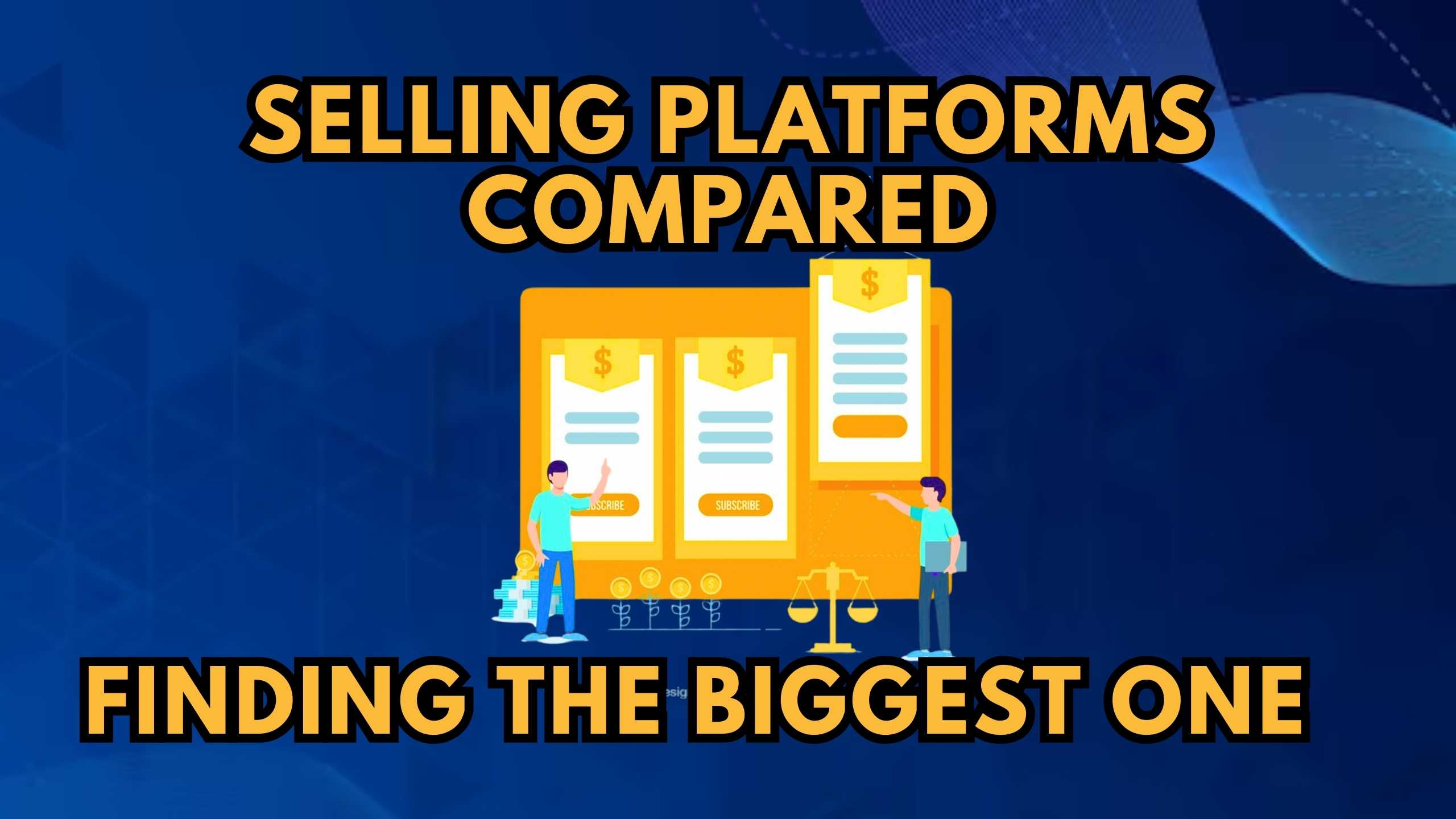Selling Platforms Compared: Finding the Biggest One


Selling Platforms Compared: Finding the Biggest One
In the dynamic realm of e-commerce, choosing the right selling platform is crucial for businesses aiming to maximize their reach and revenue. As the digital marketplace expands, finding the biggest selling platform becomes a strategic imperative. In this comprehensive exploration, we compare various platforms, analyzing their features, reach, and unique advantages to help businesses make informed decisions in their pursuit of e-commerce success.
Unveiling the Titans: Popular Selling Platforms
1. Amazon: The E-Commerce Behemoth
Amazon stands as the undisputed giant in the e-commerce landscape. Its extensive reach, robust logistics network, and diverse product categories make it a go-to choice for sellers aiming to tap into a vast and global customer base. The Amazon Marketplace has redefined online retail, providing unparalleled opportunities for businesses of all sizes.
2. eBay: The Auction and Buy-It-Now Hub
Known for its auction-style listings and Buy-It-Now options, eBay has been a pioneer in the e-commerce domain. It remains a vibrant marketplace for both new and used goods, fostering a unique buying and selling experience. eBay’s community-driven approach and diverse product offerings make it a compelling platform for sellers with niche or collectible items.
3. Shopify: Empowering Online Stores
Shopify has emerged as a powerhouse for businesses seeking a customized and user-friendly online store. With its versatile e-commerce solutions, Shopify empowers entrepreneurs to create and manage their digital storefronts seamlessly. Its extensive range of plugins and themes provides flexibility for businesses to tailor their online presence.
4. WooCommerce: Integrating with WordPress
For businesses leveraging WordPress, WooCommerce stands out as a powerful and customizable e-commerce plugin. Offering a seamless integration with WordPress websites, WooCommerce enables users to transform their sites into fully functional online stores. Its flexibility and open-source nature make it a preferred choice for those seeking a tailored e-commerce solution.
5. Etsy: A Haven for Unique and Handcrafted Goods
Catering to a niche market, Etsy has carved a niche for itself as a platform for artisans, crafters, and sellers of unique, handcrafted items. With a focus on creativity and craftsmanship, Etsy provides a platform for sellers to showcase their one-of-a-kind products, attracting buyers looking for distinctive and personalized items.
The Quest for the Biggest Selling Platform
Determining the “biggest” selling platform involves considering various factors, including market reach, user base, and industry impact. Amazon’s vast ecosystem makes it a frontrunner, while platforms like Shopify and eBay cater to specific business needs. The choice ultimately depends on the nature of the products, target audience, and long-term business goals.
Conclusion: Navigating the E-Commerce Landscape
In the diverse landscape of e-commerce platforms, each option has its strengths and unique offerings. Understanding the specific requirements of your business and aligning them with the platform’s capabilities is paramount. As technology evolves, staying adaptable and choosing platforms that can scale with your business ensures long-term success in the competitive e-commerce arena.
Unlock E-Commerce Success with Subscribed.fyi!
Ready to elevate your e-commerce strategy? Subscribed.fyi is your trusted ally, simplifying the management of your SaaS stack. Sign up today to unlock exclusive deals, streamline your digital operations, and supercharge your e-commerce journey. Your path to success begins with Subscribed.fyi!
Relevant Links:








